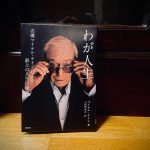Tag Archives: ロレット先生
刑事と弁護士が話す英語の違いは?
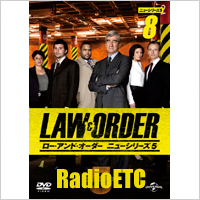
 人気テレビドラマ『Law and Order』を観ながらETCマンツーマン英会話のロレット先生(西大井/熊谷)のレッスンを受けています。Law and Orderはロレット先生お薦めのテレビ番組。ドラマの前半は刑事が容疑者を追跡し逮捕するまで、後半は弁護士や判事がその事件の被告にどのような判決を求めるのか裁判の様子を描いた、2段仕立てのストーリーになっています。刑事と容疑者、弁護士と裁判官、そして刑事同士、弁護士同士と様々な人々が交わす、様々なタイプの英語に触れることができます。
人気テレビドラマ『Law and Order』を観ながらETCマンツーマン英会話のロレット先生(西大井/熊谷)のレッスンを受けています。Law and Orderはロレット先生お薦めのテレビ番組。ドラマの前半は刑事が容疑者を追跡し逮捕するまで、後半は弁護士や判事がその事件の被告にどのような判決を求めるのか裁判の様子を描いた、2段仕立てのストーリーになっています。刑事と容疑者、弁護士と裁判官、そして刑事同士、弁護士同士と様々な人々が交わす、様々なタイプの英語に触れることができます。
さて、具体的に彼らの英語はどのように、そして何故違うのでしょうか。
All the English is different.
Lawyers and police English is different.
Not only lawyer’s English and Policeman’s English is different, but the same people speak differently depending on the situation.
For example policemen talking to the criminal use more slang and probably shorter sentences than when they are talking to the police lieutenant, the lady, that police lieutenant
When Fontana is talking to his boss, or whatever in the police station talking, their language is all different.
And lawyers talking, the lawyers are well educated people.
And the lawyer’s job is kind of like a politician.
The lawyer’s job is to convince people by speaking.
So talking to the lawyer and judge, talking to the jury, they are going to be speaking very clearly and probably slowly, trying to be persuasive, convincing.
They want to avoid misunderstanding.
They choose the words very carefully, try to choose the words have one meaning for example.
The sentence structure, they are very careful.
They don’t use any grammar mistakes.
They can’t be ambiguous, because the jury may take wrong meaning as.
And they have a lot of time. It is a court. They have plenty of time.
If they want to take it, they can speak as slowly as they want, as much as they want.
It is different from a policeman trying to conduct investigations.
They don’t have so much time to find a bad guy, right.
The police are, well educated policeman, but they are oftenly talking to people who are not so well educated, people who use a lot of slang.
Members of which might be called lower class of society, and a lot of people, they speak with use slang expressions or some cases, some kind of area related but not standard language sometimes.
So they can be more comfortable and more understandable talking in the way that people are talking with understand.
Also if you use more slang in talking, if maybe makes you sound tough.
It is much like Japan.
If you listen to policeman in Japan or TV drama, or even in real life.
A lot of them sound just like Yakuza.
And policeman and gangsters sound just same, I think.
They are using the same slang, and very often trying sounds tough.
See what some Japanese police drama, particularly if they are talking to the bad guy, they sound just the same, using the same language, trying to sound tough to intimidate and impress the criminal is talking with.
So it is very hard to see any difference between them, right?
They may be very well-educated people who don’t talk like that normally, but they are talking in criminal-field situations, so that they talk differently.
That is just same in the US, same way.
persuasive 説得力のある
convince 〈人に〉〔…を〕確信させる,納得させる.
ambiguous あいまいな; 不明瞭な.
lawyer 弁護士
judge 裁判官,判事.
jury 陪審(員団)
■テーマにしたダイアログ
・『LAW & ORDER』 シーズン15第3話「正当防衛」THE BROTHERHOOD
■出演
・ETCマンツーマン英会話のロレット先生(西大井/熊谷)
■聞き手
・青樹洋文
◆使用楽曲 (BGM)
“Movie Star * (The Making Of X) by Loveshadow
◆ポッドキャストのダウンロードや購読は、iTunes – Podcast – 「RadioETC」からも可能です。
“pushing the envelope”の意味は?
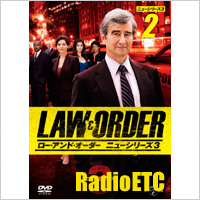
 人気テレビドラマ『Law and Order』を観ながらETCマンツーマン英会話のロレット先生(西大井/熊谷)のレッスンを受けています。Law and Orderはロレット先生お薦めのテレビ番組。ドラマの前半は刑事が容疑者を追跡し逮捕するまで、後半は弁護士や判事がその事件の被告にどのような判決を求めるのか裁判の様子を描いた、2段仕立てのストーリーになっています。刑事と容疑者、弁護士と裁判官、そして刑事同士、弁護士同士と様々な人々が交わす、様々なタイプの英語に触れることができます。
人気テレビドラマ『Law and Order』を観ながらETCマンツーマン英会話のロレット先生(西大井/熊谷)のレッスンを受けています。Law and Orderはロレット先生お薦めのテレビ番組。ドラマの前半は刑事が容疑者を追跡し逮捕するまで、後半は弁護士や判事がその事件の被告にどのような判決を求めるのか裁判の様子を描いた、2段仕立てのストーリーになっています。刑事と容疑者、弁護士と裁判官、そして刑事同士、弁護士同士と様々な人々が交わす、様々なタイプの英語に触れることができます。
さて、今日はこんな場面から。“pushing the envelope”とは、どのような意味なのでしょうか?
Judge Amanda Anderlee:
Mr.Fallon’s argument is a convincing one, Mr.McCoy.
This is how the law evolves.
The defendant’s belief may well have been objectively reasonable under the circumstances.
It’s pushing the envelope, but I’m going to let the issue go to the jury.
OK. “Pushing the envelope” is a recently a common expression.
Recently means maybe the last 10 years.
Getting very close to the limit.
Almost exceeding some limit.
Her case is the law’s limit.
Limit of maybe morality, common sense.
Pushing the border.
“Pushing the envelope” in this case, doesn’t mean necessarily a paper envelope, it means some kind of like a bubble or boundaries of something.
Pushing to go beyond the normally acceptable limits.
And it is a pretty common expression recently.
I hear it a lot maybe in the last 10 or 15 years.
You hear it a lot in science for example.
And what she is talking about is, she is talking about pushing the limit of rules, getting close to the limits of what is reasonable under the law.
She is a judge.
But it is used in other ways too.
It is used in business a lot, technology it is used at lot.
You hear the expression quite a bit.
pushing the envelope
(現在の法律、モラル、常識、等々の)「限界を超えようとしている」
別の表現に置き換えるとすると、次のような表現になります。
“(It’s) getting close to the limits”
(限界に近づきつつある)
“(It may be) going further than usual”.
(すでに通常の状態を超えていこうとしているのかもしれない)
【例文】
“Some new underwater equipment is pushing the envelope of deep diving exploration.”
(いくつかの新しい水中機材は、深海探索の限界を超えようとしている)
“iPS cell research is pushing the envelope of medical science.”
(iPS細胞研究は、医療科学の限界を打ち破ろうとしている)
■テーマにしたダイアログ
・『LAW & ORDER』 シーズン15第3話「正当防衛」THE BROTHERHOOD
■出演
・ETCマンツーマン英会話のロレット先生(西大井/熊谷)
■聞き手
・青樹洋文
◆使用楽曲 (BGM)
“Movie Star * (The Making Of X) by Loveshadow
◆ポッドキャストのダウンロードや購読は、iTunes – Podcast – 「RadioETC」からも可能です。
“let’s put it this way”の意味は?
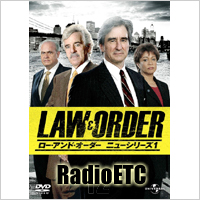
 人気テレビドラマ『Law and Order』を観ながらETCマンツーマン英会話のロレット先生(西大井/熊谷)のレッスンを受けています。Law and Orderはロレット先生お薦めのテレビ番組。ドラマの前半は刑事が容疑者を追跡し逮捕するまで、後半は弁護士や判事がその事件の被告にどのような判決を求めるのか裁判の様子を描いた、2段仕立てのストーリーになっています。刑事と容疑者、弁護士と裁判官、そして刑事同士、弁護士同士と様々な人々が交わす、様々なタイプの英語に触れることができます。
人気テレビドラマ『Law and Order』を観ながらETCマンツーマン英会話のロレット先生(西大井/熊谷)のレッスンを受けています。Law and Orderはロレット先生お薦めのテレビ番組。ドラマの前半は刑事が容疑者を追跡し逮捕するまで、後半は弁護士や判事がその事件の被告にどのような判決を求めるのか裁判の様子を描いた、2段仕立てのストーリーになっています。刑事と容疑者、弁護士と裁判官、そして刑事同士、弁護士同士と様々な人々が交わす、様々なタイプの英語に触れることができます。
さて、今日はこんな場面から。“let’s put it this way”とは、どのような意味なのでしょうか?
Marsden:
Let’s put it this way, if there was a kite out on Worley, it’s been rescinded.
Jack McCoy:
Why is that Mr.Marsden?
Marsden:
Because the only thing sweeter than a dead C.O. is one on my side of the bars.
That’s a gift that just keeps on giving.
It means let me use this expression or a discreet way of putting it is this.
You could say that.
One way of looking at it, you might say that.
let’s put it this way
「このように言わせてください」
「この表現を使わせてください」
慎重な、思慮深い表現でものごとを言い表す際に使います。
例文
“Let’s put it this way, this price would be OK if I were rich.”
(このように言わせてください。もし私が裕福であれば、この価格で問題はないでしょう。)<
“Let’s put it this way, people who complain to their boss may not be making the best career decision.”
(このような表現を使わせてください。上司に不平を言う人は、彼らのこれからの経歴を考えた際に、最善の選択ではないかもしれない。)
“Let’s put it this way, Antarctica is not a tropical resort.”
(このように言わせてください。南極大陸は南国リゾート地ではありません)
■テーマにしたダイアログ
・『LAW & ORDER』 シーズン15第3話「正当防衛」THE BROTHERHOOD
■出演
・ETCマンツーマン英会話のロレット先生(西大井/熊谷)
■聞き手
・青樹洋文
◆使用楽曲 (BGM)
“Movie Star * (The Making Of X) by Loveshadow
◆ポッドキャストのダウンロードや購読は、iTunes – Podcast – 「RadioETC」からも可能です。
“give or take”の意味は?

 人気テレビドラマ『Law and Order』を観ながらETCマンツーマン英会話のロレット先生(西大井/熊谷)のレッスンを受けています。Law and Orderはロレット先生お薦めのテレビ番組。ドラマの前半は刑事が容疑者を追跡し逮捕するまで、後半は弁護士や判事がその事件の被告にどのような判決を求めるのか裁判の様子を描いた、2段仕立てのストーリーになっています。刑事と容疑者、弁護士と裁判官、そして刑事同士、弁護士同士と様々な人々が交わす、様々なタイプの英語に触れることができます。
人気テレビドラマ『Law and Order』を観ながらETCマンツーマン英会話のロレット先生(西大井/熊谷)のレッスンを受けています。Law and Orderはロレット先生お薦めのテレビ番組。ドラマの前半は刑事が容疑者を追跡し逮捕するまで、後半は弁護士や判事がその事件の被告にどのような判決を求めるのか裁判の様子を描いた、2段仕立てのストーリーになっています。刑事と容疑者、弁護士と裁判官、そして刑事同士、弁護士同士と様々な人々が交わす、様々なタイプの英語に触れることができます。
さて、今日はこんな場面から。“give or take”とは、どのような意味なのでしょうか?
Drinking buddy:
John and I left for Disarro’s a little before eight.
Ed Green:
How long did you stay?
Drinking buddy:
A couple of hours, give or take.
Joe Fontana:
You sound pretty vague about it.
“Give or take” is use for time a lot.
It is used for other quantities too, but especially for time, it means “more or less.”
More or less is used it the same way, roughly, about, だいたい.
It is give or take.
“give or take”を使った例文:
– “Driving to Nagasaki takes 12 hours, give or take (a couple of hours).”
長崎までは来るまで12時間前後かかります。
– “I usually sleep four hours every night, give or take (an hour).”
私は通常毎晩だいたい4時間前後寝ています。
■テーマにしたダイアログ
・『LAW & ORDER』 シーズン15第3話「正当防衛」THE BROTHERHOOD
■出演
・ETCマンツーマン英会話のロレット先生(西大井/熊谷)
■聞き手
・青樹洋文
◆使用楽曲 (BGM)
“Movie Star * (The Making Of X) by Loveshadow
◆ポッドキャストのダウンロードや購読は、iTunes – Podcast – 「RadioETC」からも可能です。
“old school”の意味は?

 人気テレビドラマ『Law and Order』を観ながらETCマンツーマン英会話のロレット先生(西大井/熊谷)のレッスンを受けています。Law and Orderはロレット先生お薦めのテレビ番組。ドラマの前半は刑事が容疑者を追跡し逮捕するまで、後半は弁護士や判事がその事件の被告にどのような判決を求めるのか裁判の様子を描いた、2段仕立てのストーリーになっています。刑事と容疑者、弁護士と裁判官、そして刑事同士、弁護士同士と様々な人々が交わす、様々なタイプの英語に触れることができます。
人気テレビドラマ『Law and Order』を観ながらETCマンツーマン英会話のロレット先生(西大井/熊谷)のレッスンを受けています。Law and Orderはロレット先生お薦めのテレビ番組。ドラマの前半は刑事が容疑者を追跡し逮捕するまで、後半は弁護士や判事がその事件の被告にどのような判決を求めるのか裁判の様子を描いた、2段仕立てのストーリーになっています。刑事と容疑者、弁護士と裁判官、そして刑事同士、弁護士同士と様々な人々が交わす、様々なタイプの英語に触れることができます。
さて、今日はこんな場面から。“old school”とは、どのような意味なのでしょうか?
Worley’s boss:
Look, John Worley is old school, he’s by the book.
He is fair, he’s consistent, he doesn’t play favorites.
“Old school” means it is traditional and conservative or old fashioned, may follow that, follow the rules that he learnt in school long time ago.
“Old school” basically is used to mean traditional, old fashioned.
“old school”を使った例文:
話し手が、どう思っているかによって意味が変わってきます。
– That company is old school, they still make everything by hand.
(あの会社は時代遅れだ)、もしくは(あの会社は伝統的な手法を大切にしている)
(未だに全てが手作りだ)
– My mother was old school, she always made cakes from scratch, never using prepared mixes.
(母は時代遅れだ)、もしくは(母や昔からの方法で料理をする)
(ケーキはいつも一から自分で作り、市販のケーキミックスは決して使わない)
■テーマにしたダイアログ
・『LAW & ORDER』 シーズン15第3話「正当防衛」THE BROTHERHOOD
■出演
・ETCマンツーマン英会話のロレット先生(西大井/熊谷)
■聞き手
・青樹洋文
◆使用楽曲 (BGM)
“Movie Star * (The Making Of X) by Loveshadow
◆ポッドキャストのダウンロードや購読は、iTunes – Podcast – 「RadioETC」からも可能です。
“con”の意味は?

 人気テレビドラマ『Law and Order』を観ながらETCマンツーマン英会話のロレット先生(西大井/熊谷)のレッスンを受けています。Law and Orderはロレット先生お薦めのテレビ番組。ドラマの前半は刑事が容疑者を追跡し逮捕するまで、後半は弁護士や判事がその事件の被告にどのような判決を求めるのか裁判の様子を描いた、2段仕立てのストーリーになっています。刑事と容疑者、弁護士と裁判官、そして刑事同士、弁護士同士と様々な人々が交わす、様々なタイプの英語に触れることができます。
人気テレビドラマ『Law and Order』を観ながらETCマンツーマン英会話のロレット先生(西大井/熊谷)のレッスンを受けています。Law and Orderはロレット先生お薦めのテレビ番組。ドラマの前半は刑事が容疑者を追跡し逮捕するまで、後半は弁護士や判事がその事件の被告にどのような判決を求めるのか裁判の様子を描いた、2段仕立てのストーリーになっています。刑事と容疑者、弁護士と裁判官、そして刑事同士、弁護士同士と様々な人々が交わす、様々なタイプの英語に触れることができます。
さて、今日はこんな場面から。“con”とは、どのような意味なのでしょうか?
Worley’s boss:
John Worley. One of my best men.
Ed Green:
Yeah. Ruiz says that Worley fractured Trammell’s skull with his baton.
Worley’s boss:
Have you ever know a con to tell the truth?
“Con” means a convict. “Con” means a person in a prison.
And this episode is about prisons and people connected with prisons, and including the prison guard. Worley is the prison guard.
They call them prison guards, formally, I think, they call them corrections officers.
I think couple of times in episode you heard CO.
C for corrections. O for officers.
But a convict means a person who is in the prison now.
A person who used to be in the prison is called “ex-con”, “ex-convict”.
You almost never hear people saying “convict” in speaking.
You hear “convicts” on the TV news maybe, or read it in newspaper, but in everyday conversation people use “con” for convict.
And “ex-con” means somebody who used to be a prisoner and now he has been released.
Strictly speaking a convict is a prison who is in a prison now, ex-convict means he is out.
But you hear people using convict very loosely, even for people who were out of the jail already.
You’re supposed to use ex-convict, but they still use “convict” sometimes.
Q: What can I say instead of “con” ?
Instead of “con”? You can say “prisoner.”
“Inmate” is another one.Sometimes you hear.
But prisoner is only used for prison.
Convict is also used only for prison.
“Convict” come from “convicted,” means someone who is convicted of a crime.
That is where it comes from.
A person who is convicted is a convict.
They are coming from the same root.
An inmate is also used for people who are in a mental institution, mental hospital.
They can’t escape easily, but not prisoners exactly.
There are in for their own safety basically.
So inmate is used for both, prisoners and also mental patients in institutions.
Those are just about only 2 words you can use really in normal conversation as prisoners and inmate.
Just slang words, “jailbird” for example, because it is 檻みたいなものでしょ
But that is a slang, it is a kind of old slang.
I don’t think anybody under about 40 uses the word anymore.
Prisoner and inmate are permitted alternatives really.
con
= convict
受刑者、囚人
inmate
(病院・刑務所などの)在院者,収容者,在監者.
jail bird
囚人
■テーマにしたダイアログ
・『LAW & ORDER』 シーズン15第3話「正当防衛」THE BROTHERHOOD
■出演
・ETCマンツーマン英会話のロレット先生(西大井/熊谷)
■聞き手
・青樹洋文
◆使用楽曲 (BGM)
“Movie Star * (The Making Of X) by Loveshadow
◆ポッドキャストのダウンロードや購読は、iTunes – Podcast – 「RadioETC」からも可能です。
“I lit a candle”の意味は?
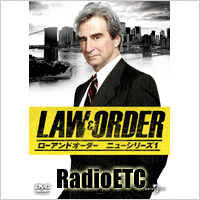
 人気テレビドラマ『Law and Order』を観ながらETCマンツーマン英会話のロレット先生(西大井/熊谷)のレッスンを受けています。Law and Orderはロレット先生お薦めのテレビ番組。ドラマの前半は刑事が容疑者を追跡し逮捕するまで、後半は弁護士や判事がその事件の被告にどのような判決を求めるのか裁判の様子を描いた、2段仕立てのストーリーになっています。刑事と容疑者、弁護士と裁判官、そして刑事同士、弁護士同士と様々な人々が交わす、様々なタイプの英語に触れることができます。
人気テレビドラマ『Law and Order』を観ながらETCマンツーマン英会話のロレット先生(西大井/熊谷)のレッスンを受けています。Law and Orderはロレット先生お薦めのテレビ番組。ドラマの前半は刑事が容疑者を追跡し逮捕するまで、後半は弁護士や判事がその事件の被告にどのような判決を求めるのか裁判の様子を描いた、2段仕立てのストーリーになっています。刑事と容疑者、弁護士と裁判官、そして刑事同士、弁護士同士と様々な人々が交わす、様々なタイプの英語に触れることができます。
さて、今日はこんな場面から。“he was pissed”とは、どのような意味なのでしょうか?
Joe Fontana:
The only problem with this little fairy tale is this, you told Michelle that you were going to straighten Billy out that night.
Lay the law down to him.
Vince:
Yeah, Yeah, I was talking trash because I don’t want to look like a punk.
But believe me, I lit a candle.
I don’t run into the guy.
“I lit a candle” means I prayed.
===
Why lit a candle? In churches, particularly Catholic churches, in churches, you see in the movies sometimes, on the side of a church, maybe there are racks of candles, small candles, and a little box to put coins in usually.
So a little bit like lighting the incense in oriental temples, Japanese, Chinese temples, you light the incense, it’s kind of a similar idea.
You light a candle usually you put a coin.
The coin is basically paying for the candle.
Put the little coin in the box, kind of like a 賽銭箱 and you light the candle and pray for something usually, for something.
So what he was saying is “I lit a candle” means I prayed that I wouldn’t meet Michaelle’s old boy friend.
running into
ばったり出くわす
■テーマにしたダイアログ
・『LAW & ORDER』 シーズン15第3話「正当防衛」THE BROTHERHOOD
■出演
・ETCマンツーマン英会話のロレット先生(西大井/熊谷)
■聞き手
・青樹洋文
◆使用楽曲 (BGM)
“Movie Star * (The Making Of X) by Loveshadow
◆ポッドキャストのダウンロードや購読は、iTunes – Podcast – 「RadioETC」からも可能です。
“he was pissed”の意味は?

 人気テレビドラマ『Law and Order』を観ながらETCマンツーマン英会話のロレット先生(西大井/熊谷)のレッスンを受けています。Law and Orderはロレット先生お薦めのテレビ番組。ドラマの前半は刑事が容疑者を追跡し逮捕するまで、後半は弁護士や判事がその事件の被告にどのような判決を求めるのか裁判の様子を描いた、2段仕立てのストーリーになっています。刑事と容疑者、弁護士と裁判官、そして刑事同士、弁護士同士と様々な人々が交わす、様々なタイプの英語に触れることができます。
人気テレビドラマ『Law and Order』を観ながらETCマンツーマン英会話のロレット先生(西大井/熊谷)のレッスンを受けています。Law and Orderはロレット先生お薦めのテレビ番組。ドラマの前半は刑事が容疑者を追跡し逮捕するまで、後半は弁護士や判事がその事件の被告にどのような判決を求めるのか裁判の様子を描いた、2段仕立てのストーリーになっています。刑事と容疑者、弁護士と裁判官、そして刑事同士、弁護士同士と様々な人々が交わす、様々なタイプの英語に触れることができます。
さて、今日はこんな場面から。“he was pissed”とは、どのような意味なのでしょうか?
Frank Sweeney:
Look, Billy came by my crib a couple of nights ago.
Ed Green:
You hooked him up with some crank?
Frank Sweeney:
No man. Nothing like that. Went out. Had a few beers.
Talked about old times.
Then I told him I saw his old lady with some new guy.
Joe Fontana:
How’d he take that?
Frank Sweeney:
He was pissed.
One thing is he said “he was pissed”.
How do you take that, “he was pissed”.
In American English, “pissed” is not the best word to use anyway generally.
In slang, in American slang, “he was pissed” means “he was angry.” OK.
In British slang, “he was pissed” means “he was drunk.”
So the same word is used as soon as an adjective in quite different meaning.
In the UK it means drunk, in the US means “he was angry”.
So he was pissed, he was angry.
pissed
1酔っぱらって.(英国)
2腹を立てて.(米国)
■テーマにしたダイアログ
・『LAW & ORDER』 シーズン15第3話「正当防衛」THE BROTHERHOOD
■出演
・ETCマンツーマン英会話のロレット先生(西大井/熊谷)
■聞き手
・青樹洋文
◆使用楽曲 (BGM)
“Movie Star * (The Making Of X) by Loveshadow
◆ポッドキャストのダウンロードや購読は、iTunes – Podcast – 「RadioETC」からも可能です。
“Don’t be a smart guy”の意味は?
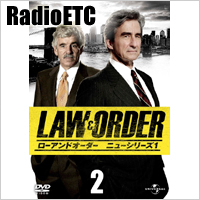
 人気テレビドラマ『Law and Order』を観ながらETCマンツーマン英会話のロレット先生(西大井/熊谷)のレッスンを受けています。Law and Orderはロレット先生お薦めのテレビ番組。ドラマの前半は刑事が容疑者を追跡し逮捕するまで、後半は弁護士や判事がその事件の被告にどのような判決を求めるのか裁判の様子を描いた、2段仕立てのストーリーになっています。刑事と容疑者、弁護士と裁判官、そして刑事同士、弁護士同士と様々な人々が交わす、様々なタイプの英語に触れることができます。
人気テレビドラマ『Law and Order』を観ながらETCマンツーマン英会話のロレット先生(西大井/熊谷)のレッスンを受けています。Law and Orderはロレット先生お薦めのテレビ番組。ドラマの前半は刑事が容疑者を追跡し逮捕するまで、後半は弁護士や判事がその事件の被告にどのような判決を求めるのか裁判の様子を描いた、2段仕立てのストーリーになっています。刑事と容疑者、弁護士と裁判官、そして刑事同士、弁護士同士と様々な人々が交わす、様々なタイプの英語に触れることができます。
さて、今日はこんな場面から。“Don’t be a smart guy”とは、どのような意味なのでしょうか?
Ed Green:
What were you doing night before last, Frank?
Frank Sweeney:
I was moving boxes to a warehouse till midnight.
I’ve got three dudes who’ll vouch for me, too.
Joe Fontana:
Well we’re gonna need their names.
Frank Sweeney:
Yeah? It was eeneymeeneyminey and moe.
Joe Fontana:
Hey, Don’t be a smart guy.
“Don’t be a smart guy” means just the opposite of what you think.
Well, it means “Don’t try to act clever”. “Don’t try to act smart when you are not.”
OK. If in Japanese, probably 「ふざけるな」とか「バカなまねしない」とか言うよね
But in English, they don’t say “Don’t act stupid”, because he is being stupid.
He is giving the police hard time.
Not a good idea if you are out of prison…
And he is not only out of prison, but he is out of the prison on parole, which means if he does something bad, automatically he goes back to the prison, right.
So he can’t do drugs, he can’t, he has to have a job, he can’t have a gun, various things that..
Once a week, he has to go to report to an officer to check out how he is doing, and drug test and stuff so.
He is not in a good position to be making fun of the police, right. He is not smart at all.
So “Don’t be smart guy” is in fact a sarcastic thing to say, it’s not ironic, it’s sarcastic.
So it means “Don’t try to act clever.”
“Don’t joke with us inappropriately.”
This is not a good time to joke, but he is joking and acting as if he is smart.
賢いまねをするんじゃない it’s a literal translation but that kind doesn’t make sense in Japan.
スラングですが、「ふざけないで」は他に次のような言い方があります。
Don’t pull my chain.”
直訳すると「私の鎖を引っ張らないで。」
想像してみてください。ライオン、熊、ゴリラなどが凶暴な動物が安全のための鎖で繋がれていました。その鎖を間違って引っ張ってしまったとしたら。。。
他には
“Don’t be a wise guy.”
“Wise guy”は、”smart guy”と同じ意味です。
“Don’t get smart with me.”
“Get smart with me” で、「ふざけたことを言う」という意味です。“Don’t try to act as if you are smarter than I am,” 「(本当はそうでないのに)おれより賢いふりをするな」という意味です。
番組情報
■テーマにしたダイアログ
・『LAW & ORDER』 シーズン15第3話「正当防衛」THE BROTHERHOOD
■出演
・ETCマンツーマン英会話のロレット先生(西大井/熊谷)
■聞き手
・青樹洋文
◆使用楽曲 (BGM)
“Movie Star * (The Making Of X) by Loveshadow
◆ポッドキャストのダウンロードや購読は、iTunes – Podcast – 「RadioETC」からも可能です。
“Eeny, Meeny, Miney, Moe“の意味は?
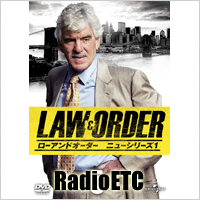
“Eeny, Meeny, Miney, Moe“の意味は?

人気テレビドラマ『Law and Order』を観ながらETCマンツーマン英会話のロレット先生(西大井/熊谷)のレッスンを受けています。Law and Orderはロレット先生お薦めのテレビ番組。ドラマの前半は刑事が容疑者を追跡し逮捕するまで、後半は弁護士や判事がその事件の被告にどのような判決を求めるのか裁判の様子を描いた、2段仕立てのストーリーになっています。刑事と容疑者、弁護士と裁判官、そして刑事同士、弁護士同士と様々な人々が交わす、様々なタイプの英語に触れることができます。
さて、今日はこんな場面から。“Eeny, Meeny, Miney, Moe“とは、どのような意味なのでしょうか?
Ed Green:
What were you doing night before last, Frank?
Frank Sweeney:
I was moving boxes to a warehouse till midnight.
I’ve got three dudes who’ll vouch for me, too.
Joe Fontana:
Well we’re gonna need their names.
Frank Sweeney:
Yeah? It was eeneymeeneyminey and moe.
Joe Fontana:
Hey, Don’t be a smart guy.
That is from a kids’ or children’s nonsense rhyme.
It is used for choosing things.
If you don’t have another reason to chose, like 5 pieces of candy for example.
You can choose one.
You point in series at each one.
“Eeny, Meeny, Miney, Moe, catch a tiger by the toe.”
Each word you point the next item, right.
“If he hollers let him go. Eeny, Meeny, Miney, Moe”
And the final one is the one you pick.
There is a Japanese one, quite similar.
どちらにしようかな…
Just like that.
“Eeny, Meeny, Miney, Moe” has no meaning at all.
It’s just nonsense words.
It sounds kind of like names but …Moe particularly sounds like a name, but basically it has no meaning.
It is just nonsense words, in kids rhyme.
So he is mocking the police basically.
It is impossible.
Nobody’s name is Eeny or Meeny.
Everybody knows that.
That rhyme from the time they’re kids.
“Eeny, Meeny, Miney, Moe” is that he basically is mocking the police.
ふざけて言っているんだよね
「誰にしようかな?」と、大人たちがランダムに誰かを選び出すとき、日本ではじゃんけんが最も多く使われますね。また、阿弥陀くじなど。ロレット先生は日本に来てはじめて阿弥陀くじの存在を知ったそうです。アメリカでは、コインの裏表が最もポピュラーとのこと。また、目印がついていたり一本だけ短いストローをひいたり、丸めた紙を箱の中に入れてそれを引くくじなどが用いられるそうです。
flip a coin (表か裏かを決めるために)硬貨をはじき上げる.
coin flipping コイントス
■テーマにしたダイアログ
・『LAW & ORDER』 シーズン15第3話「正当防衛」THE BROTHERHOOD
■出演
・ETCマンツーマン英会話のロレット先生(西大井/熊谷)
■聞き手
・青樹洋文
◆使用楽曲 (BGM)
“Movie Star * (The Making Of X) by Loveshadow
◆ポッドキャストのダウンロードや購読は、iTunes – Podcast – 「RadioETC」からも可能です。
“Here we go”の意味は?
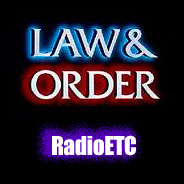
 人気テレビドラマ『Law and Order』を観ながらETCマンツーマン英会話のロレット先生(西大井/熊谷)のレッスンを受けています。Law and Orderはロレット先生お薦めのテレビ番組。ドラマの前半は刑事が容疑者を追跡し逮捕するまで、後半は弁護士や判事がその事件の被告にどのような判決を求めるのか裁判の様子を描いた、2段仕立てのストーリーになっています。刑事と容疑者、弁護士と裁判官、そして刑事同士、弁護士同士と様々な人々が交わす、様々なタイプの英語に触れることができます。
人気テレビドラマ『Law and Order』を観ながらETCマンツーマン英会話のロレット先生(西大井/熊谷)のレッスンを受けています。Law and Orderはロレット先生お薦めのテレビ番組。ドラマの前半は刑事が容疑者を追跡し逮捕するまで、後半は弁護士や判事がその事件の被告にどのような判決を求めるのか裁判の様子を描いた、2段仕立てのストーリーになっています。刑事と容疑者、弁護士と裁判官、そして刑事同士、弁護士同士と様々な人々が交わす、様々なタイプの英語に触れることができます。
さて、今日はこんな場面から。“Here we go”とは、どのような意味なのでしょうか?
Ed Green:
Here we go. All of Trammell’s priors.
ようしあったとか
In this case it means “here is what we are looking for”.
They are looking through the data base.
They are looking for people who know the deal guy, the victim.
And they have the guyFrank’s name from his sister.
And “here we go” is rather like saying おっ、あった, “ah, here it is”, “here something is”,” this maybe useful”.
“Here we go” is used in different situations, actually.
“Here we go”, depending on the situations and contexts, “here it is“ might be used, “here they are, this looks good” or something like that.
There are other things you can say like that.
It depends on the situation.
Examples certain thing you might say, for example if you’re outside, you waited, you are looking for a train, when is the next train, on a smartphone maybe, in there.
You’re looking up the train schedule.
“Oh here we go, I’ve found the train schedule.”
Or if you’re using a navigation application, trying to find the restaurant in Shibuya, Shinagawa or some place, following a map, and you see it,
“Oh here we go, this is the restaurant we were looking for.”
Or “Here we go, the house is right across the street.”
It is kind of random, in Japanese probably you know ようし、あったぞ kind of depends これだとか。
In this case it is finding something, a different thing.
It is finding something.
It is also used to mean, in fact recent “here we go” is something is going to begin now.
Something is going to begin.
Where is restaurant, or we got to go to, now we can find the train schedule or something.
Something is starting from now.
So it is “here we go”.
That can also be the beginning of something, for example in a restaurant you order something, and waiting for it and the waiter brings it and you see him.
“Ah, here we go, the waiter is bringing our order right now”.
“Here we go, I’ve found the train timetable.”
“Here we go, this is the restaurant we were looking for.”
“Here we go, the house is right across the street.”
■テーマにしたダイアログ
・『LAW & ORDER』 シーズン15第3話「正当防衛」THE BROTHERHOOD
■出演
・ETCマンツーマン英会話のロレット先生(西大井/熊谷)
■聞き手
・青樹洋文
◆使用楽曲 (BGM)
“Movie Star * (The Making Of X) by Loveshadow
◆ポッドキャストのダウンロードや購読は、iTunes – Podcast – 「RadioETC」
“She was in labor”の意味は?

 人気テレビドラマ『Law and Order』を観ながらETCマンツーマン英会話のロレット先生(西大井/熊谷)のレッスンを受けています。Law and Orderはロレット先生お薦めのテレビ番組。ドラマの前半は刑事が容疑者を追跡し逮捕するまで、後半は弁護士や判事がその事件の被告にどのような判決を求めるのか裁判の様子を描いた、2段仕立てのストーリーになっています。刑事と容疑者、弁護士と裁判官、そして刑事同士、弁護士同士と、様々な人々が交わす、様々なタイプの英語に触れることができます。
人気テレビドラマ『Law and Order』を観ながらETCマンツーマン英会話のロレット先生(西大井/熊谷)のレッスンを受けています。Law and Orderはロレット先生お薦めのテレビ番組。ドラマの前半は刑事が容疑者を追跡し逮捕するまで、後半は弁護士や判事がその事件の被告にどのような判決を求めるのか裁判の様子を描いた、2段仕立てのストーリーになっています。刑事と容疑者、弁護士と裁判官、そして刑事同士、弁護士同士と、様々な人々が交わす、様々なタイプの英語に触れることができます。
さて、今日はこんな場面から。“She was in labor”とは、どのような意味なのでしょうか?
Ed Green:
Anybody see anything?
Jordy:
Just the couple who found the vic.
Ed Green:
Where are they?
Jordy:
She was in labor, so I took down their info and let ‘em go.
Joe Fontana:
You’re a soft touch, Jordy.
“She was in labor” means she was having a baby, she was about have a baby.
So that’s a long process, right?
For the beginning of the process when she was really going to have a baby, that is called as being in labor.
Sometimes it’s a couple of hours, sometimes it’s a half a day.
At the very beginning, they are looking for a taxi to take her to a hospital.
She was just about to the have baby pretty soon.
—–
“She was giving birth.”
“She was having a baby.”
So there is a small nuance difference here.
“Giving birth” really means the baby is coming now.
“Having a baby” is maybe a little loose of the time wise.
“In labor” means the time that final process starts to the time the baby is born.
So it may be a few hours.
“Giving a birth” is the last part of final process basically.
So you can use giving birth about to give birth.
in labor
陣痛を起こして、分娩中
give birth
赤ちゃんを産む
have a baby
出産する
■テーマにしたダイアログ
・『LAW & ORDER』シーズン15 第3話「正当防衛」THE BROTHERHOOD
■出演
・ETCマンツーマン英会話のロレット先生(西大井/熊谷)
■聞き手
・青樹洋文
◆使用楽曲 (BGM)
“Movie Star * (The Making Of X) by Loveshadow
◆ポッドキャストのダウンロードや購読は、iTunes – Podcast – 「RadioETC」からも可能です。
That is something. の意味は?

 アメリカの人気テレビ番組、CSI:科学捜査班を見ながら、ETCマンツーマン英会話のロレット先生(西大井/熊谷)のレッスンを受けています。
アメリカの人気テレビ番組、CSI:科学捜査班を見ながら、ETCマンツーマン英会話のロレット先生(西大井/熊谷)のレッスンを受けています。
舞台はマイアミです。Ryan Wolfeがフランク・トリップ (Frank Tripp)に電話で鑑識の結果を伝えます。
It’s Ryan Wolfe, CSI.
I got something from the soil on Mr.Duquesne’s tires.
It’s traces of iron covered with a thin layer of calcium oxide, calcium flouride, and silicon dioxide.It looks like weld spatter.
Frank Tripp:
That’s something. Thanks.
さて、この”that’s something.”とはどのような意味なのでしょうか
That’s something means that, In this case means that’s useful information.
That’s something is used a lot,
If you really want more, something more information usually, only you get is small amount.
It is better than nothing.
That’s something.
I would like to have your entire answer.
We don’t have whole answer.
We only have small piece of information.
Oh that’s something.
In this case, for example, they are looking for how did this car get blood in reel wheel.
I have no idea, where he went, because the driver was drunk.
So missing a lot of important information.
And Ryan cause up this is we found in dirt on the tire, three chemicals, looks like weld spatter.
It is only small amount of information doesn’t tell exactly what he was, but gives little more information than before.
And so Frank says, oh that’s something. Thanks.
■出演
・ETCマンツーマン英会話のロレット先生(西大井/熊谷)
■聞き手
・青樹洋文
◆使用楽曲 (BGM)
“Movie Star * (The Making Of X) by Loveshadow from ccMixter
“If you don’t mind, “の意味は?

 (7分10秒)
(7分10秒)
アメリカの人気テレビ番組、CSI:科学捜査班を見ながら、ETCマンツーマン英会話のロレット先生(西大井/熊谷)のレッスンを受けています。
舞台はマイアミです。自分の父親に容疑をかけられたCalleigh Duquesne (カリー・デュケーン)は、操作からはずされます。変わりにその日配属したばかりの新人、Ryan Wolfe(ライアン・ウルフ)が担当することになります。Calleigh DuquesneがRyan Wolfeの仕事振りをのぞきに来ました。
Ryan Wolfe:
8 and a half.
Officer Duquesne, I know it is my first day.
Regardless, uncovering the truth is more important to me than proving myself.
So, if you don’t mind…
I am not finished yet..
さて、if you don’t mind, とはどのような意味なのでしょうか?
If you don’t mind.
In Japanese, basically “if you don’t mind” means よろしければ, for example.
It means “if it OK with you”, “if it is not problem for you”.
And in this case, this is a Ryan first day on the job as CSI.
And Calleigh Duquesne has been doing job for long time.
She is a senior.
But her father is involved in the accident.
So she is not supposed to touch it.
And it looks like their rules is she can come within 10 feet, about 3 meters on the place.
He is asking her put hands in her pocket.
He is junior, very junior.
He just started his first day
He is very junior member of the team.
And she is much about that.
She is much seniority.
She is veteran of CSI
So he is a kind of polite, but also being firm.
If you don’t mind is polite.
If you don’t mind, I am not finished yet.
I guess you can also translate 悪いんですが とか よろしければ とか
If you don’t mind
きにしないんであればが直訳だけど
In this case, it is a polite way of saying something.
But the reason he is being polite is because she is senior to him.
It is also being firm.
Totally 2 or 3 times, stay away from the car.
■出演
・ETCマンツーマン英会話のロレット先生(西大井/熊谷)
■聞き手
・青樹洋文
◆使用楽曲 (BGM)
“Movie Star * (The Making Of X) by Loveshadow from ccMixter
I appreciate that. の意味は?
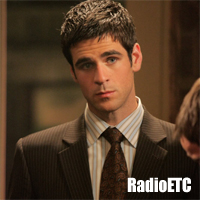
 (4分18秒)
(4分18秒)
アメリカの人気テレビ番組、CSI:科学捜査班を見ながら、ETCマンツーマン英会話のロレット先生(西大井/熊谷)のレッスンを受けています。
舞台はNYです。あらぬ容疑をかけられたDon Flackは、操作からはずされ事務職へまわされてしまいます。そこへ仲の良い同僚、Stella Bonasera ステラ・ボナセーラ が励ましに来ます。
Stella Bonasera:
Hey! How are you holding up?
Don Flack:
Fantastic! What is a five-letter word for a cooking utensil?
Stella Bonasera:
A whisk?
Don Flack:
That would be it.
Stella Bonasera:
We’re all rooting for you. I want you to know that.
Don Flack:
Thank you. I appreciate that.
さて、この I appreciate that. とはどのような意味なのでしょうか。
OK.
Appreciate is that…it in Japanese could be 感謝, mostly be 感心.
Appreciate is actually used for the both cases.
“I appreciate the modern art”, for examples, it is like a 感心.
“I appreciate your hard work” is 感謝.
“Appreciate” can be used for both.
In this case, he is meaning “I am grateful”.
感謝します。
OK, she told him, “we’re all rooting for you” meaning that we are all 応援しています.
じゃあ、感謝しています。
Alternatives to “I appreciate that” could be “I am grateful”.
Front me to just thank you
=====
Flack and Bonasera here are friends.
So it is not so much formal.
It is more feeling, because she is using it at more formal words.
She is using at less common words, “appreciate”, “that is appreciated”, that as less common than just “thank you”.
So it has more feeling behind it.
■出演
・ETCマンツーマン英会話のロレット先生(西大井/熊谷)
■聞き手
・青樹洋文
◆使用楽曲 (BGM)
“Movie Star * (The Making Of X) by Loveshadow from ccMixter
We are all rooting for you. の意味は?

We are all rooting for you. の意味は?
 (2分17秒)
(2分17秒)
アメリカの人気テレビ番組、CSI:科学捜査班を見ながら、ETCマンツーマン英会話のロレット先生(西大井/熊谷)のレッスンを受けています。
舞台はNYです。あらぬ容疑をかけられたDon Flackは、操作からはずされ事務職へまわされてしまいます。そこへ仲の良い同僚、Stella Bonasera ステラ・ボナセーラ が励ましに来ます。
Stella Bonasera:
Hey! How are you holding up?
Don Flack:
Fantastic! What is a five-letter word for a cooking utensil?
Stella Bonasera:
A whisk?
Don Flack:
That would be it.
Stella Bonasera:
We’re all rooting for you. I want you to know that.
Don Flack:
Thank you. I appreciate that.
さて、この We’re all rooting for you. とはどのような意味なのでしょうか。
Rooting for you.
Rooting is the same as cheering, you know, game, football game or something.
Rooting is an another word for cheering.
Let’s go out and root for the team.
Root is basically same as cheer.
Q: So can I say, “I am rooting for San Francisco Giants.
Oh, yes. Sure.
I am rooting for Hanshin or something.
“Rooting for” is used in just that way.
■出演
・ETCマンツーマン英会話のロレット先生(西大井/熊谷)
■聞き手
・青樹洋文
◆使用楽曲 (BGM)
“Movie Star * (The Making Of X) by Loveshadow from ccMixter
How are you holding up? の意味は?


(2分21秒)
アメリカの人気テレビ番組、CSI:科学捜査班を見ながら、ETCマンツーマン英会話のロレット先生(西大井/熊谷)のレッスンを受けています。
舞台はNYです。あらぬ容疑をかけられたDon Flackは、操作からはずされ事務職へまわされてしまいます。そこへ仲の良い同僚、Stella Bonasera ステラ・ボナセーラ が励ましに来ます。
Stella Bonasera:
Hey! How are you holding up?
Don Flack:
Fantastic! What is a five-letter word for a cooking utensil?
Stella Bonasera:
A whisk?
Don Flack:
That would be it.
Stella Bonasera:
We’re all rooting for you. I want you to know that.
Don Flack:
Thank you. I appreciate that.
さて、”How are you holding up?”とはどのような意味なのでしょうか?
“Holding up” in this case, means some,,,
that is what she is meaning it.
He is in a difficult situation.
He is not able to be a policeman, you see, really.
He is doing paperwork.
He can’t because if he want to go outside.
He feel he is being treated unjustly.
Because he isn’t doing anything bad.
From his point of view, he is doing anything bad.
So it is difficult to bear.
She comes in.
She knows it must be difficult situation for him.
So she wants to know “how are you bearing up ”.
Bearing up is the another word to mean holding up.
Bearing up is the another word you can use for that.
How are you managing this difficult situation.
■出演
・ETCマンツーマン英会話のロレット先生(西大井/熊谷)
■聞き手
・青樹洋文
◆使用楽曲 (BGM)
“Movie Star * (The Making Of X) by Loveshadow from ccMixter
daffyの意味は
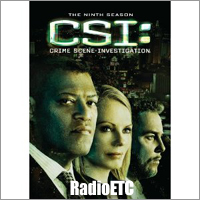
 120620.mp3 (3分22秒) CSI:科学捜査班のラスベガス、マイアミ、そしてニューヨークの3シリーズが合同捜査を行った『CSI トリロジー』を題材にして、ETC英会話のロレット先生のレッスンを受けています。
120620.mp3 (3分22秒) CSI:科学捜査班のラスベガス、マイアミ、そしてニューヨークの3シリーズが合同捜査を行った『CSI トリロジー』を題材にして、ETC英会話のロレット先生のレッスンを受けています。
舞台はマイアミです。Ryan Wolfeがフランク・トリップ (Frank Tripp)に電話で鑑識の結果を伝えます。
A coroner
Wow, this is DE.DE.Chase
Dr. Ray Langston
Who?
A coroner
DE.DE.Chase. She is a meteorologist of channel 27 on Barstow
Dr. Ray Langston
You are sure about that?
A coroner
Definitely.
Nick Stokes
Why do you watch Barstow?
A coroner
DE DE always made me laugh.
She is a kind of duffy, you know.
さて、daffyとはどのような意味なのでしょうか。
Daffy.
There used be an American cartoon called Daffy Duck.
It is a Warner Brothers’ cartoon.
Bugs Bunny and Daffy Duck, and so they are another rival for Disney.
Disney has Donald Duck.
Warner Brothers has Daffy Duck.
It means sort of silly or foolish or in amusing way, eccentric
I can’t really of think good Japanese word.
“どじ”だとか。
===
It’s kind of active.
Quietly stupid is not daffy.
Just stupid is not daffy.
Daffy suggests kind of active but “天然”.
■出演
・ETCマンツーマン英会話のロレット先生(西大井/熊谷)
■聞き手
・青樹洋文
………
◆使用楽曲 (BGM)
“Movie Star * (The Making Of X) by Loveshadow from ccMixter
definitelyの意味は
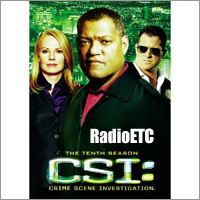
 120616.mp3 (3分22秒) CSI:科学捜査班のラスベガス、マイアミ、そしてニューヨークの3シリーズが合同捜査を行った『CSI トリロジー』を題材にして、ETC英会話のロレット先生のレッスンを受けています。
120616.mp3 (3分22秒) CSI:科学捜査班のラスベガス、マイアミ、そしてニューヨークの3シリーズが合同捜査を行った『CSI トリロジー』を題材にして、ETC英会話のロレット先生のレッスンを受けています。
殺人現場に駆けつけた捜査官は、その女性がいつも自分が見ているテレビ番組のお天気キャスターのディーディ・チェイスに間違いないといいます。こんな会話です。
A coroner
Wow, this is DE.DE.Chase
Dr. Ray Langston
Who?
A coroner
DE.DE.Chase. She is a meteorologist of channel 27 on Barstow
Dr. Ray Langston
You are sure about that?
A coroner
Definitely.
Nick Stokes
Why do you watch Barstow?
A coroner
DE DE always made me laugh.
She is a kind of duffy, you know.
さて、この”definitely”とはどのような意味なのでしょうか
Definitely means certainly and without doubt.
====
He is alway watching her on TV, yeah.
So he knows for sure.
It’s her.
There’s no question in his mind at all.
He is completely confident in his answer.
He is sure.
■出演
・ETCマンツーマン英会話のロレット先生(西大井/熊谷)
■聞き手
・青樹洋文
………
◆使用楽曲 (BGM)
“Movie Star * (The Making Of X) by Loveshadow from ccMixter
I tell you what. の意味は
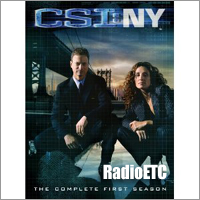
 (3分22秒)
(3分22秒)
CSI:科学捜査班のラスベガス、マイアミ、そしてニューヨークの3シリーズが合同捜査を行った『CSI トリロジー』を題材にして、ETC英会話のロレット先生のレッスンを受けています。
Nick Stokes
Have you been contacting with her mother?
Dr. Ray Langston
Not yet. It was in NY.
But I told this woman I will do everything I could find her daughter.
So, here I am.
Nick Stokes
I tell you what.
Let’s take care of call out first.
Than after the shift. Hey, I will come back here with you to pass that picture together.
Okay?
Dr. Ray Langston
Okay.
Nick Stokes
Okay.Come on.
さて、I tell you what とはどのような意味なのでしょうか。
I tell you what is used as you might in Japanese, you might use, in some cases maybe ”さあ”,
“さあ、こうしよう”.
Or in other cases, you might use as “まず”, “まず、こうやってから…”
Or in other cases, you might use as “これでどう?”
Basically it is used for presenting a proposal or suggestion.
You see. Introducing a proposal or suggestion.
“こうしよう”, “まず、こうしてから、ああしよう”.
In this case, you see, they’re supposed to be,,, in this case, Dr.Langston didn’t answer his telephone.
And he’s supposed to be the crime scene, some place else, instead he’s passing out photographs, asking if they’ve seen this girl.
And Nick Stokes comes looking for him and says,“we have to go to the crime scene”, basically.
But he understands that Dr.Langston is very serious about trying to find this young woman, because he promised her mother.
And so he presented to his proposal.
“Ok, tell you what” “こうしよう”
“Let’s go to the crime scene, and then we will come back and I will help you.”
That is his “提案” kind of.
It’s his recommendation.
===
Introduction for some kind of proposal.
Sometimes it is used for an explanation but usually even that is like a proposal.
For example, maybe two detectives are talking about why did something happen.
One of them says 仮説.
こっちの仮説とあっちの仮説が違ったりなんかして。。。
「こうなったんじゃないの」と片方が言ったら
ちょっと違うなと思っている人が
I tell you what. Maybe this happened and then this happened and then this happened.
どう?
===
I tell you what.
This is what I think.
This is what I suggest.
■出演
・ETCマンツーマン英会話のロレット先生(西大井/熊谷)
■聞き手
・青樹洋文
………
◆使用楽曲 (BGM)
“Movie Star * (The Making Of X) by Loveshadow from ccMixter
「特徴」signatureとcharacterの違い
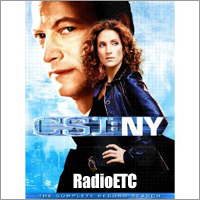
 120608.mp3 (3分22秒)
120608.mp3 (3分22秒)
CSI:科学捜査班のラスベガス、マイアミ、そしてニューヨークの3シリーズが合同捜査を行った『CSI トリロジー』を題材にして、ETC英会話のロレット先生のレッスンを受けています。
signatureは特徴という意味で使われています。では、同じように特徴を意味する言葉にcharacterという単語がありますが、この二つの単語の意味や使い方に違いはあるのでしょうか。
Dr. Ray Langston
Mr.Cole, you have a very distinctive style. You use the stroke clean all way through
Nathan Cole (a buchter)
It’s my signature.
That’s why people pay a lot of money to watch me work.
And my house is bigger than your prison.
signatureは特徴という意味で使われています。では、同じように特徴を意味する言葉にcharacterという単語がありますが、この二つの単語の意味や使い方に違いはあるのでしょうか。
Actually there are two differences.
One difference, a big difference is “signature” is about acting how you do something, how you move, how you behave.
It’s about moving.
It’s about acting, how you act.
Character is about emotional characteristics or mental characteristics.
So for example, if you are watching a western movie Clint Eastwood movie or something, fast draw, always shooting twice might be a signature.
It’s always moving in the same way.
Throwing a poncho over one shoulder and then drawing a gun may be his signature.
But character is maybe being heartless, or being generous, or being honest.
All those emotional or mental characteristics.
And they are not about acting, they’re about being.
That’s a big difference.
■出演
・ETCマンツーマン英会話のロレット先生(西大井/熊谷)
■聞き手
・青樹洋文
………
◆使用楽曲 (BGM)
“Movie Star * (The Making Of X) by Loveshadow from ccMixter
「皮肉」sarcasmとironyの違い
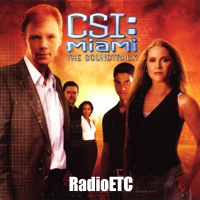
 (3分22秒)
(3分22秒)
CSI:科学捜査班のラスベガス、マイアミ、そしてニューヨークの3シリーズが合同捜査を行った『CSI トリロジー』を題材にして、ETC英会話のロレット先生のレッスンを受けています。
ロレント先生は約30年日本企業で日本人のスタッフに囲まれてお仕事をされてきましたので、とても流暢な日本語を話されます。レッスンでも、英単語の微妙なニュアンスの違いなどを日本語で解説してくださいます。和英辞典で「皮肉な」を調べると、「sarcasm」と「irony」の二つの単語が表記さています。この二つ単語に意味や使い方の違いはあるのでしょうか。 ロレント先生が解説してくださいました。
It’s ironic that he died when there was a million yen under his tatami.
That’s a really sarcastic comment.
He answered sarcastically.
Don’t you think it’s too much sarcasm?
■出演
・ETCマンツーマン英会話のロレット先生(西大井/熊谷)
■聞き手
・青樹洋文
………
◆使用楽曲 (BGM)
“Movie Star * (The Making Of X) by Loveshadow from ccMixter
awesomeの意味は
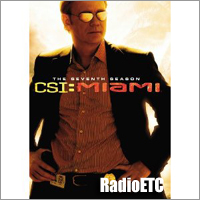
 120601.mp3 (4分20秒) CSI:科学捜査班のラスベガス、マイアミ、そしてニューヨークの3シリーズが合同捜査を行った、「CSI トリロジー」を題材にして、ETC英会話のロレット先生のレッスンを受けています。
120601.mp3 (4分20秒) CSI:科学捜査班のラスベガス、マイアミ、そしてニューヨークの3シリーズが合同捜査を行った、「CSI トリロジー」を題材にして、ETC英会話のロレット先生のレッスンを受けています。
まず舞台はマイアミです。DNA分析官のナタリアに、モデル・エージェントのジミー・バリスが容疑者でもあるにも係わらず、グラビア雑誌のモデルをやってみないかと勧誘を始めます。あきれたナタリアはこんなふうに答えます。
A model manager:
Hey, you are one smoking lady.
I could get you a magazine cover like that.
Natalia:
Awesome!
Can you get this dirtbag outta (out of) here, and I’ll bag everything up?
(“Dirtbag” is an insulting slang term, sometimes used about criminals.)
さて、awesome とはどのような意味なのでしょうか。
“Awesome” means really impressive in a positive way generally.
“Awe” is the noun.
■出演
・ETCマンツーマン英会話のロレット先生(西大井/熊谷)
■聞き手
・青樹洋文
………
◆使用楽曲 (BGM)
“Movie Star * (The Making Of X) by Loveshadow from ccMixter
smoking ladyの意味は

 120528.mp3 (3分18秒)
120528.mp3 (3分18秒)
CSI:科学捜査班のラスベガス、マイアミ、そしてニューヨークの3シリーズが合同捜査を行った、「CSI トリロジー」を題材にして、ETC英会話のロレット先生のレッスンを受けています。
まず舞台はマイアミです。DNA分析官のナタリアに、モデル・エージェントのジミー・バリスが容疑者でもあるにも係わらず、グラビア雑誌のモデルをやってみないかと勧誘を始めます。
A model manager:
Hey, you are one smoking lady.
I could get you a magazine cover like that.
Natalia:
Awesome!
Can you get this dirtbag outta (out of) here, and I’ll bag everything up?
(“Dirtbag” is an insulting slang term, sometimes used about criminals.)
さて、smoking lady とはどのような意味なのでしょうか。
Hot is used very much to mean sexy.
He is a hot guy.
She is a hot girl.
Hot is meaning sexy.
These are all slang expressions.
Smoking means really hot.
It’s so hot.
It’s smoking.
When Something gets really hot.
It gets hot enough to start to burn.
Smoke comes out.
Just sexy is hot.
Really sexy is smoking.
Hot enough to be smoking.
That is why they say smoking.
■出演
・ETCマンツーマン英会話のロレット先生(西大井/熊谷)
■聞き手
・青樹洋文
………
◆使用楽曲 (BGM)
“Movie Star * (The Making Of X) by Loveshadow from ccMixter














